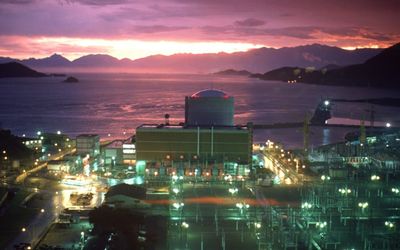IF SA is going to invest R1-trillion or more in new nuclear power plants, we should be very concerned about what’s going on at the Nuclear Energy Corporation of SA (Necsa).
Indeed, we should probably be concerned at the state of this entity whether or not we’re contemplating any more nuclear power stations. This is yet another state agency whose finances and governance are in shambles.
The government’s apparent inability to preserve the integrity or financial health of these entities puts large question marks over whether they should be state-owned at all (and even whether they should exist).
Necsa has been operating without a functioning board or a permanently appointed CE.
Phumzile Tshelane, whose CE contract has been renewed on a monthly basis since July, faces court action on two fronts. The Companies and Intellectual Property Commission has applied to the High Court in Pretoria for Mr Tshelane to be placed on probation for behaviour inconsistent with his duties as a director in terms of the Companies Act. He is alleged to have violated Necsa’s motor vehicle policy and refused to comply with a board instruction to reimburse Necsa for the private use of a vehicle.
Added to that is a case brought by a former Necsa director, who has applied to the court to have Mr Tshelane removed from his post and for him and the remaining directors to be declared delinquent under the Companies Act. The reasons range from misleading the board, to appointing people with tainted records to senior posts. The lack of security clearances for executives seems to be an issue too.
As if that were not enough, Necsa has also not finalised its 2014-15 financial statements, which should have been tabled in Parliament in September.
The background to this is disturbing, to say the least. One of the reasons is a dispute between Necsa and the auditor-general over its reporting of the costs of decommissioning and decontaminating used nuclear material in its 2013-14 financial statements.
These costs relate to the old apartheid-era weapons programme in Pelindaba, as well as Necsa’s current activities. Decommissioning and decontaminating will be a major liability for the company in the future.
That these programmes should be effectively and safely conducted and properly paid for is also, no doubt, of great concern to all South Africans, given the sensitivity and the risks attached to nuclear power in all its forms. Necsa, however, is arguing that it cannot be expected to take on the full burden of these costs.
For a nuclear operator, Mr Tshelane’s focus seems worryingly far from nuclear safety issues. Rather, he has been busy lately with setting up a business nuclear energy desk to ensure black businesses benefit from the government’s nuclear-build programme.
He appears to be jumping the gun, given that we’re still in the dark about how this nuclear-build programme will be structured, and the government is some way off from the commercial procurement of anything related to the programme.
But Necsa evidently sees it as a priority to get business in early on the nuclear rollout, working with the Black Business Council to set up a nuclear energy desk.
There certainly is a case to be made that it has to be ensured that domestic businesses, especially black-owned ones, benefit from any big infrastructure investment programmes and that these result in the transfer of skills and training.
We trust, however, that Necsa’s desk is not simply a case of setting itself up to dispense patronage, in an environment in which the pickings could be very large.
The question marks over the integrity of its directors, and over its financial position, do not inspire confidence.
Nor does the blind eye the energy minister appears to be turning to all of this.




















Change: -0.47%
Change: -0.57%
Change: -1.76%
Change: -0.34%
Change: 0.02%
Data supplied by Profile Data
Change: -1.49%
Change: 0.00%
Change: -0.47%
Change: 0.00%
Change: -0.08%
Data supplied by Profile Data
Change: 0.48%
Change: 0.91%
Change: 0.38%
Change: -0.15%
Change: 1.05%
Data supplied by Profile Data
Change: 0.25%
Change: -0.21%
Change: 0.33%
Change: -1.22%
Change: -1.21%
Data supplied by Profile Data